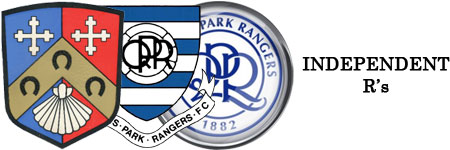Lane’s Club No.2 opened its doors in November 1934 in Queen Street, Hammersmith. Queen Street became known at some point as Queen Caroline Street.
Titled, ‘Lane’s Club Closed’, the following article appeared on 28th February 1936:
‘Mr Paul Bennett, the West London Magistrate, heard summonses brought by the police on Monday (24th inst.) in respect of the conduct of Lane’s Club, at Queen’s Street, Hammersmith, and in the end his Worship imposed penalties and costs amounting to £455 (now equivalent to over £30,000).
Lane’s London Clubs Ltd of Baker Street, W., were summoned in respect of the illegal sale of intoxicants at Lane’s Club No.2, Queen Street, Hammersmith, on December 7th, 8th, 10th, 13th, 14th, 20th and 21st, and Harold Lane, of Augustus Road, Wimbledon, and James Cranny, of Lime Grove, Shepherd’s Bush, were summoned for aiding and abetting in the sale of intoxicants on the same dates.
There was also a summons against Leslie Thorpe, secretary, to show cause why the club at Hammersmith should not be struck off the register.
Mr Derek Curtis Bennett, council for the defence, intimated that there would be a plea of guilty to the summonses and that there was no objection to the removal of the club from the register.
Mr C. M. Melville, who prosecuted for the Commissioner of Police on the instructions of Sub-Div. Inspector Hill, stated that the club belonged to the Company and the defendant Harold Lane was general manager.
Mr Lane had for some time conducted a club at Baker Street; then a Company was formed and this club at Queen Street was started in November 1934.
Certain rules were drawn up for the management of the club, and in theory the rules were excellent, but they had not been observed.
The defendant Cranny became manager at a weekly salary of £5, and in addition he received commission of one per cent on the sale of intoxicants. The Committee, which was supposed to supervise the conduct of the club, consisted at first of Lane himself and afterwards two friends of his joined him.
Observation was kept on the club by police officers and showed the club was really an unlicensed public-house. Whist drives, dances and all-in wrestling matches were held; scenes of drunkenness were frequent, and the lavatory accommodation was totally inadequate.
On December 21st Inspector Hill, with other officers, visited the club. There were 360 persons present, and of those 100 were the worse for drink, and out of that 100, thirteen persons were arrested for drunkenness and disorderly conduct, or obstructing the police.
A large number of persons admitted that they – though not members – had paid for their own drinks. Moreover, among those present were persons of criminal record, prostitutes and local roughs.
The only thing to be said in favour of the conduct of the club was that drinks were not sold after permitted hours.
Mr Melville asked that the premises should be disqualified. Inspector Hill agreed, in reply to Mr Curtis Bennett, that with the exception of lavatory accommodation, the premises were fitted up as a club and the appointments – furniture, etc – were good.
Mr Curtis Bennett: “Mr Lane has a large club at Baker Street?”
Inspector: “Yes”.
“Would you agree that the probable cause of this Hammersmith club becoming lax is that there was remote control from Baker Street?”
“Yes, that might be so.”
Addressing the Magistrate, Mr Curtis Bennett said that Mr Lane quite realised now that from his club at Baker Street – which was a very large club with a membership of 10,000 – he could not properly control the Hammersmith club, and therefore he was quite prepared for the closing of the club, but in mitigation he wished to point out that under his lease, which did not expire till September, he would be liable for over £600.
In addition, he had been penalised lately in a large sum of money over the all-in wrestling matches on Sundays.
In fairness to the landlord of the premises it should be said that he had gone to great expense to fit up these premises as a club.
The defendant Cranny, who was a salaried manager, had carried out his duties as well as possible, but in a club like this, where there were attractions such as whist drives, dances, etc. it was extremely difficult to keep out intruders and there was no doubt that Cranny had found the task too much for him.
The Magistrate observed that in his opinion this was one of the worst cases of its kind that could be imagined. There was mass drunkenness and mass disorder. It was quite time that this kind of place should be shut up.
His Worship imposed on the Company a fine of £30 on each of seven summonses, together with total costs of 30 guineas; on Lane a fine of £20 on each of seven summonses together with total costs of 30 guineas, and on Cranny a fine of 40s on each of seven summonses without costs.
The club would be struck off the register and the premises disqualified for 12 months.’
The club did re-open the following year, but not without incident!
Steve Russell
(Thanks to Colin Woodley for his assistance)
